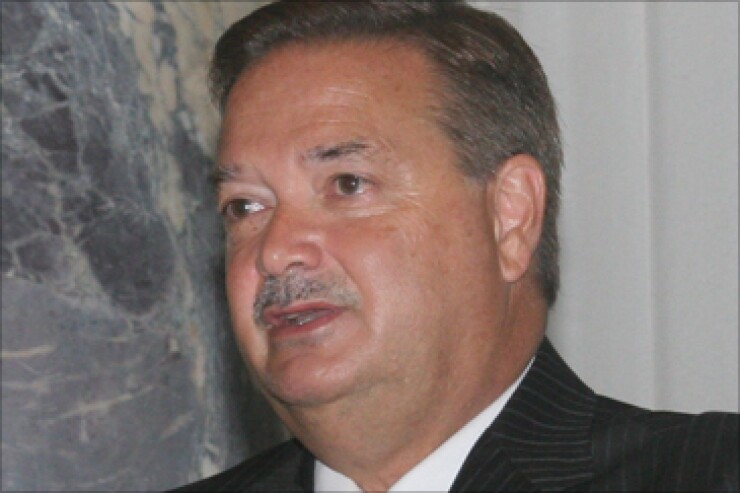Wintrust Financial in Rosemont, Ill., has bought 10 banks over the last seven years and would like to make another acquisition soon, ideally for a bank with less than $1 billion of assets.
The problem is that while the company is fielding plenty of inquiries, most potential sellers are demanding prices much higher than what the $28 billion-asset Wintrust is willing to pay, said Chief Operating Officer David Dykstra.
“It’s getting active again; there’s a lot being shown,” Dykstra said at the Royal Bank of Canada Financial Institutions Conference in New York on Wednesday. But Wintrust has yet to pull the trigger because “the pricing expectation has moved away from us, or the credit quality at some of these banks is not that good,” he added.

The $22.6 billion-asset Prosperity Bancshares in Houston is another active acquirer that, at the moment, is sticking to the sidelines because it also believes asking prices, particularly for publicly traded banks, are too high.
“Our last deal was a small deal, $600 million, and it worked out real [well], but it’s been over a year,” CEO David Zalman said at the same conference. “It’s time for us to do a deal, but it has to work.”
One reason banks could be holding out for better prices is that they are under no real pressure to sell, according to industry experts. With interest rates rising, corporate taxes declining and
Banks “had to fight to get through the financial crisis, so they’re not going to sell right before they get to the party,” Mosby said. “They don’t feel the pressure from their boards, they’re not feeling pressure from the regulatory people they’ve been dealing with. Right now, they are enjoying their jobs, they want to keep them and they all want to benefit from what the environment is going to give them.”
Still, many bankers and industry experts believe that, even in these favorable conditions, there are still too many banks — not to mention credit unions and nonbank alternative lenders — chasing too few quality loans. Moreover, with Congress on the verge of raising the asset threshold for determining if a bank is systemically important from $50 billion to $250 billion, observers expect banks that had been wary of making deals for fear of crossing the threshold are eager to back in the M&A game.
“This legislation is another log on the fire,” said Chris Marinac, director of research at FIG Partners in Atlanta. “Changing the buffer is a green light for companies to get larger, whether you are near the threshold or not. You could be a $30 billion bank and you now have a new game plan, or you have the ability to fly your plane at a higher altitude than you thought before.”
Indeed, smaller regionals like Prosperity, Wintrust and the $19 billion-asset United Bankshares in Charleston, W.Va., seem to have the most interest in acquisition. United, for example, is eyeing more acquisitions in the Washington metro area, which is already its biggest market, Chief Financial Officer Mark Tatterson said Wednesday at the Raymond James Institutional Investors Conference.
United has been an active acquirer in the D.C. area, recently completing deals for
Some other banks still digesting acquisitions, though, are in no rush to do more deals. Cleveland-based KeyCorp has reaped significant benefits from its 2016 acquisition of First Niagara Financial Group in Buffalo, N.Y., but there’s a downside, said Chief Financial Officer Don Kimble.
"We weren't an active acquirer before" buying First Niagara, but "we don't have plans to be an active acquirer going forward," Kimble said. "One of the things that we did learn [from the First Niagara deal] is that there's a lot of work to go through an acquisition of size, and we ended up intentionally delaying certain investments.”





